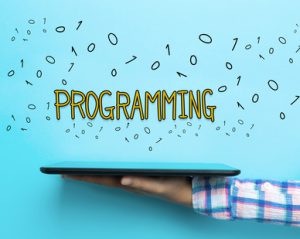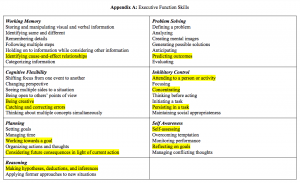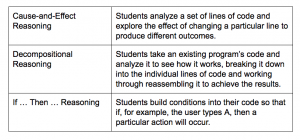As a former computer programmer, who believes that programmers run the world, I have a particular fondness for the first full week in December, known as “Hour of Code.” Coding deserves a lot more respect than it gets for raising overall student achievement.
 Coding is the art and science of giving commands to a computer to make something happen. For students, it often focuses on moving characters or objects around a screen to accomplish some task, or giving commands to a robotic device to have it carry out specific tasks, such as picking up an object or moving. The Hour of Code site has many coding activities in which students (and you) can engage.
Coding is the art and science of giving commands to a computer to make something happen. For students, it often focuses on moving characters or objects around a screen to accomplish some task, or giving commands to a robotic device to have it carry out specific tasks, such as picking up an object or moving. The Hour of Code site has many coding activities in which students (and you) can engage.
You can think of Hour of Code as an introduction to the field of computer science. However, the academic skills students will build during that hour are powerful. First, they will be exercising many executive function skills. The highlighted skills below are just some that stand out; you could actually highlight almost every executive function skill as being addressed through coding. As you plan or use existing coding activities, map them to executive function skills to see how you robust your coding activities really are.

Coding also builds reasoning skills, which are essential to student achievement. Here are just three types of reasoning supported by coding:

For a more comprehensive list of types of reasoning skills, visit the Changing Minds website.
Try some of this year’s Hour of Code activities and think through how each one builds executive function and reasoning skills, both key to increasing student achievement. Then consider building coding opportunities into your classroom or course throughout the year. Promote coding; change the world!
